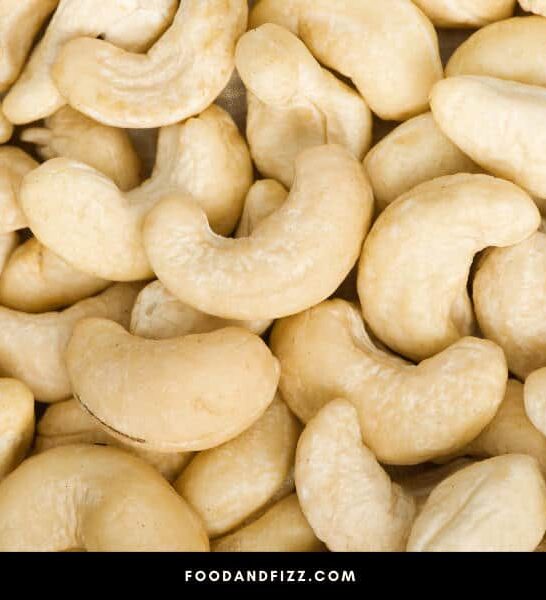Cashews are underrated cooking ingredients. They add a delightful crunch to different dishes along with a slightly buttery flavor that is pleasing to the palate.
Keeping a steady supply of cashews at home is smart. Just make sure you watch them closely so you don’t end up eating spoiled nuts.
Learn more about the signs indicating you have spoiled cashews by going through the rest of this article.
Can Cashews Go Bad?
Cashews can go bad as they are not immune from spoiling. Common indicators of spoiled cashews include shriveling, new textures, discoloration, and the presence of a rancid odor. Spoiled cashews also feature a new flavor that is best described as sour. When stored properly, cashews can last for up to six months inside a refrigerator. Storing them in the freezer will extend their shelf life up to a year.
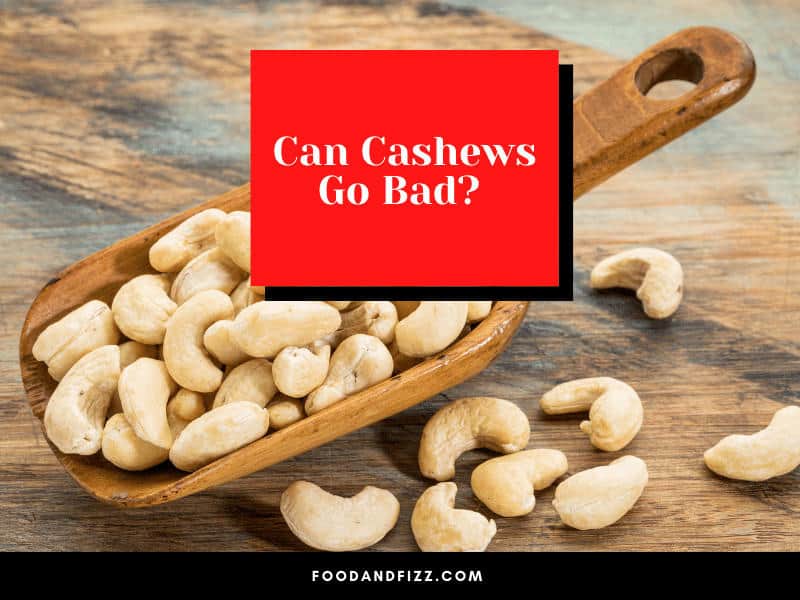
Do Cashews Spoil?
Savory dishes and desserts can quickly become more exciting with the addition of cashews.
Salads, stir-fries, and wraps benefit greatly from the crunchy texture that cashew nuts provide. Meanwhile, you can use those same cashews to add some nice texture to cakes, cookies, and ice cream.
Don’t forget about the health benefits that cashews provide.
Per WebMD, cashews can help lower your bad cholesterol level, provide a wide variety of good nutrients, and also reduce your risk of developing certain diseases. They are still high in calories so they must be consumed in moderation, but they offer great benefits nonetheless.
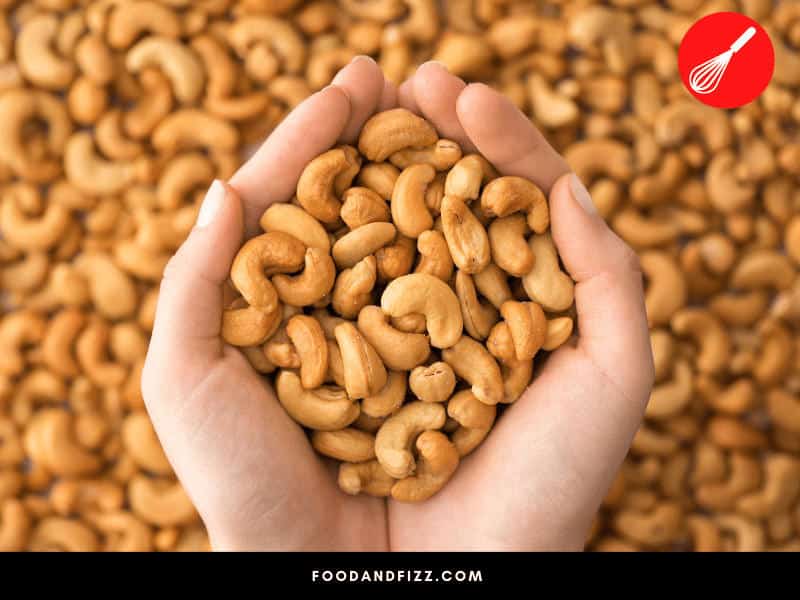
Cashews deserve a spot in your diet. You can keep a nice stash of them inside your home so you can quickly improve your dishes both in terms of flavor and nutritional profile.
Unfortunately, cashews are still susceptible to spoiling. Be mindful of that if you decide to buy them in bulk.
Below, we detail the different things you need to look for so you can tell if your cashews are still safe to eat. Check them out and commit them to memory if you are planning to build up your own cashew stash.
1. Shriveling
One of the first signs of cashew spoilage you need to watch out for is shriveling.
Cashews will start to become wrinkly as they approach spoilage. They will look dried out and less appealing.
Shriveling tends to happen when cashews have become very old. Discard them when they reach that point because they will only make you sick.
In extreme cases, some cashews may dry out completely if they have remained in storage for too long.
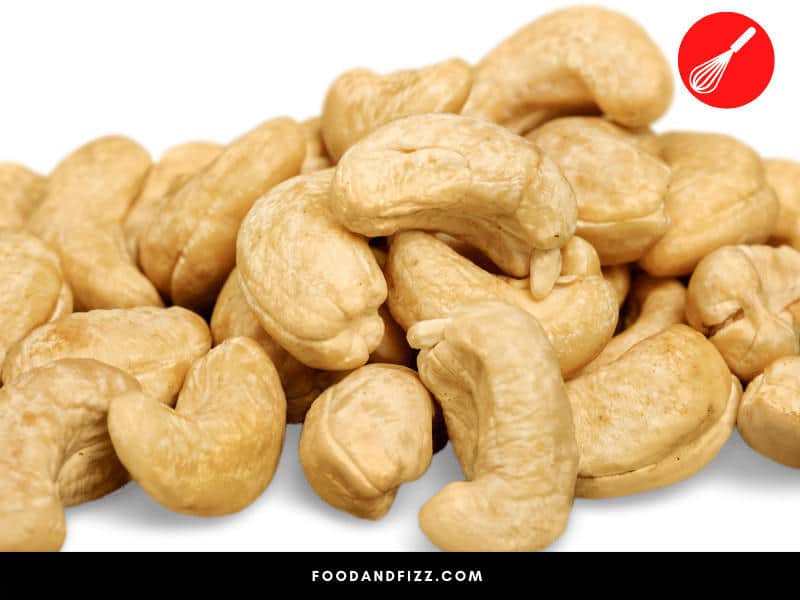
2. Brittle or Oily Texture
Cashew nuts are crunchy. That’s one of the reasons why they can be such fantastic additions to our meals.
However, good cashew nuts should still have some integrity when you handle them. They shouldn’t fall apart as soon as you add the slightest bit of pressure.
If your cashew nuts are brittle, then that means they have gone past their peak. Avoid eating them because they will do you no good.
Some cashew nuts may also develop an oily texture as they approach spoilage. You want nothing to do with those excessively oily cashews so simply discard them.
3. Discoloration
You can also tell that cashew nuts are no longer safe to eat based on their color.
Cashews typically feature a light brown or medium brown color. The variation in how brown they are may be due to how they were prepared beforehand.
As long as the cashews remain in that color spectrum, they are usually fit for consumption.
Strange patches of color on the surface of the cashew are legitimate causes for concern. Those unusual color patches could be hinting at the presence of mold.
Moldy cashews should be thrown out immediately.
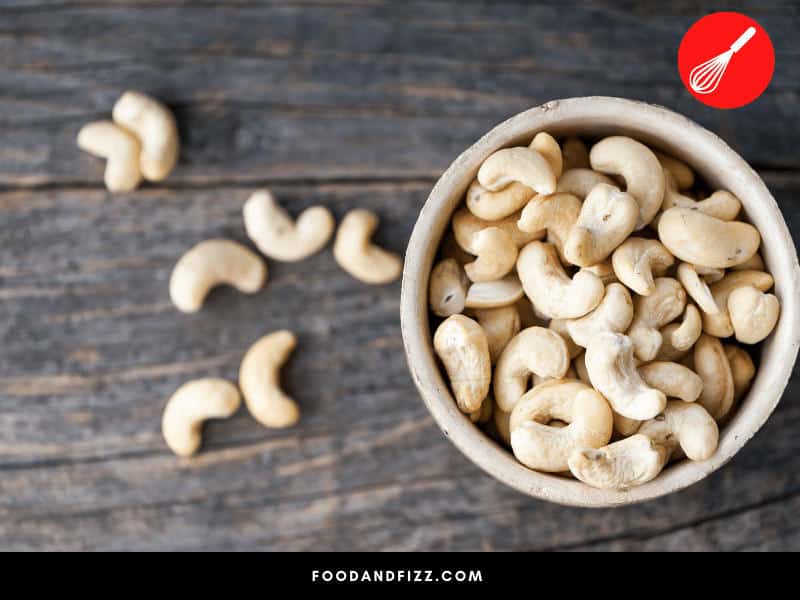
4. Rancid Odor
Spoiled cashews will not pass the smell test.
Upon opening your bag of leftover cashews, you may be greeted by a smell that can best be described as rancid. That’s not an odor you want to detect from the cashews you are planning to eat.
5. Sour Taste
If you still cannot tell if your leftover cashews are spoiled, you can conduct a taste test to gauge their quality.
Break off a little bit of one cashew and give it a taste. You can tell your cashews are spoiled if they taste sour.
Sour isn’t exactly in the cashew’s typical flavor profile. Take the presence of that sour flavor as confirmation that your cashews have expired.
How Should You Store Cashews?
Cashews are easy enough to store.
To store them properly, you need to start by picking out a suitable container.
Cashews sold in resealable cans or jars can be kept in their original containers during storage. If the original container is not capable of protecting the cashews from air exposure, then you have to use something else.
A simple airtight container or resealable bag will suffice for storing your cashews.
You can also store your cashews in the pantry. For long-term storage, consider keeping the cashews in either your refrigerator or your freezer.
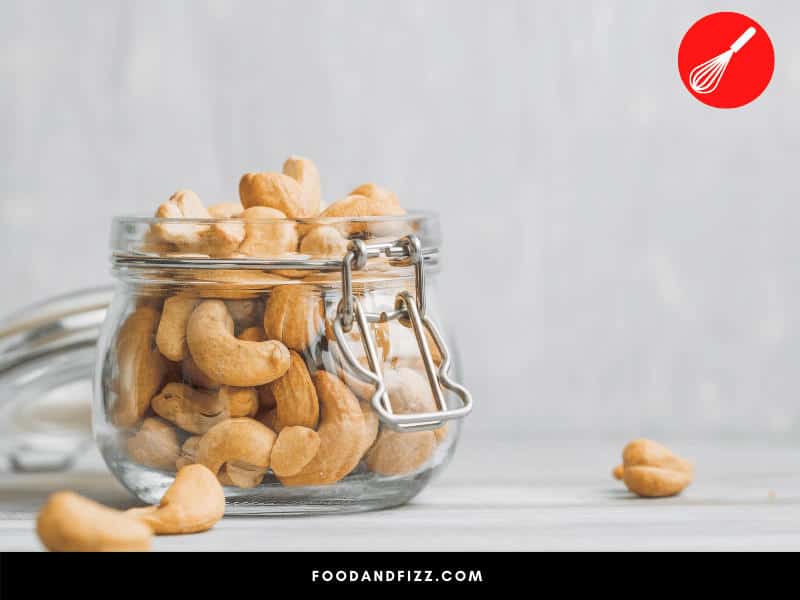
How Long Can Your Cashews Stay in Storage?
The maximum storage time for your cashews will depend on your chosen storage area.
Cashews in the pantry should remain usable for about a month. Store your cashews in the refrigerator and they should be safe to eat for six months.
Freezing your cashews greatly extends their shelf life. They should still be okay to use even after spending an entire year in your freezer.
Conclusion to Can Cashews Go Bad
Storing cashews in your home so you can easily access their nutrients and distinctive flavors is a great idea. As long as you keep an eye out for the warning signs of spoilage and store your cashews properly, you can ensure that they will not go to waste.
Frequently Asked Questions About Can Cashews Go Bad
What Is the Ideal Refrigerator Temperature if You Are Storing Cashews?
Setting your refrigerator temperature to 68 degrees Fahrenheit (20 degrees Celsius) is recommended if you are storing cashews. You can maximize their shelf life by storing them at that temperature.
What Happens if You Eat Spoiled Cashews?
Eating spoiled cashews can cause you to experience some digestive issues. You may also experience a fit of vomiting due to the presence of spoiled cashews in your body.

